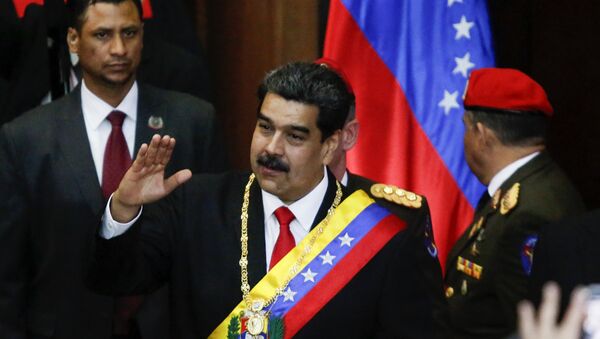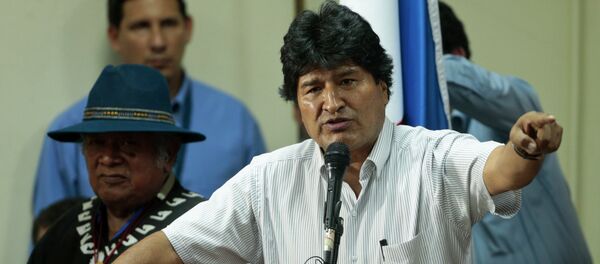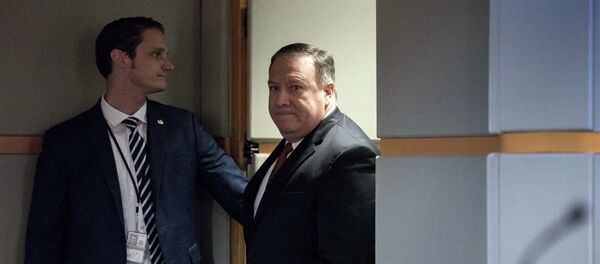On 2 February Venezuelan President Nicolas Maduro proposed snap parliamentary elections while addressing his supporters in Caracas; however, according to Fulton Armstrong, a senior fellow at American University's Centre for Latin American and Latino Studies, Maduro's move is not enough to dispel tensions.
"If he had offered early elections across the board — including the presidency, governorships, and assemblies — he would be sending two very important signals," Armstrong told Sputnik. "One would be confidence in his own leadership — that is, confidence that he would win a new election. The other would be that he's open to a negotiated settlement of the crisis. The absence of those signals only emboldens his opponents and their foreign backers".
Armstrong criticised Caracas for what he called "gross mismanagement of the economy and his ruthless overreaction to challenges" and drew attention to the fact that a number of Latin American states — "which themselves have changed in the past couple years" — had turned their back on the Maduro government.
Eleven Latin American countries as well as the US, Canada, Spain, Austria, Britain, the Czech Republic, Denmark, Estonia, France, Germany, Poland, Portugal, and Sweden have recognised Juan Guaido — the opposition leader who declared himself Venezuela's interim president on 23 January.
Russia, China, Mexico and several others are supporting Maduro. According to a Sputnik source in Brussels, Italy vetoed a 31 January EU statement recognising Guaido.
The scholar noted that "there's no evidence that any of the Latin American governments, except perhaps Colombia, knew anything about National Assembly President [Juan] Guaidó before he declared himself interim president", however, they jumped at the opportunity to back him in order to "rid them of Maduro and, they think, end the Venezuelan meltdown".
The scholar presumed that "only bold, confident steps will enable Maduro to save himself at this point".
"Serious observers are offering serious ideas for a negotiated settlement", he said. "Guaido and his backers in Venezuela, Washington, and Latin America probably feel momentum is on their side, making them unlikely to accept a deal. But Maduro should not be the one to say no. He certainly feels it's unfair in strategic terms, but he has no choice in tactical terms: compromise, either unilateral or within a negotiated settlement, is the only way out".
According to Armstrong, "calling for elections to replace his opponents in the National Assembly is not compromise".
"If Maduro wants to rescue his already-tattered legacy, he's going to have to be smarter than his opponents," the American scholar opined.
Ealier, the self-proclaimed interim president stated that he would appoint diplomatic representatives to a number of countries that through their weight behind him.
Additionally, speaking to Sputnik, Venezuela's opposition envoy to the Lima Group Julio Borges stated the bloc would like to establish contact with Moscow and Beijing to discuss the crisis in Venezuela.
The views and opinions expressed by the speaker do not necessarily reflect those of Sputnik.







